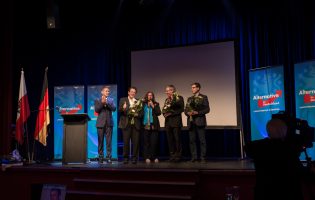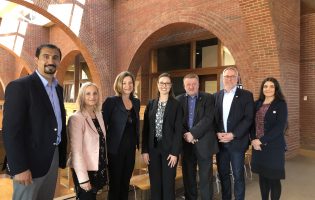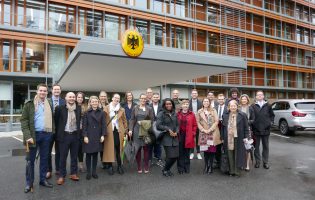
The 2019 Regional Elections in the East: Small States, Big Impact
On September 1, the eastern German states of Brandenburg and Saxony will elect new state parliaments (Landtage). Both are relatively small states with 2.5 million and 4 million people respectively …

In Brandenburg, A Last-Ditch Attempt for the SPD to Maintain Its Stronghold as Anti-Establishment Parties Surge
If the European elections were not a wake-up call for the collapsing Social Democratic Party in Germany, the election in the state of Brandenburg on September 1 is likely to …

Electoral Uncertainty in a Changing Saxony
On September 1, voters in the eastern state of Saxony will be headed to the polls to elect a new state government. In making their choice, voters will have to …

Elections in Thuringia: Can Ramelow’s Coalition Hold On?
On October 27, voters in the eastern German state of Thuringia will head to the polls. In Thuringia’s last election, which took place in 2014, a left-wing “red-red-green” coalition was …

Transitional Justice as a Foreign Policy Issue across the Atlantic: Trends and Counter-trends
Transitional justice either describes a socio-political process in transitional societies after conflict or authoritarian rule or a set of measures that should facilitate this process. The process in general and …
Recent Authors
AGI provides knowledge, insights, and networks as tools to solve the challenges ahead.
Support Our Work
Transitional Justice as a Foreign Policy Issue across the Atlantic: Trends and Counter-trends
Transitional justice either describes a socio-political process in transitional societies after conflict or authoritarian rule or a set of measures that should facilitate this process. The process in general and …

The 9 Percent Trap: The German Left’s Identity Crisis
The German Left Party is in the midst of yet another crisis. Party chairperson Katja Kipping has been openly deliberating resignation; the co-founder and influential former Social Democrat Oskar Lafontaine …
The Future of the Society, Culture & Politics Program
Senior Fellow and Director of the Society, Culture & Politics Program Dr. Eric Langenbacher lays out his vision for the future of the program.

Democracy and the Double Standard: European Parliament Responses to Ursula von der Leyen
Feminist scholars on both sides of the Atlantic have long assumed that there is a positive correlation between women’s numerical presence in legislative bodies (descriptive representation) and their ability to …

Wunderbar Together in Southwestern USA
In the course of the AGI project “Integration: Made in Germany” the group travelled through the Southwest region of the United States from March 17 to March 22, 2019. It …





